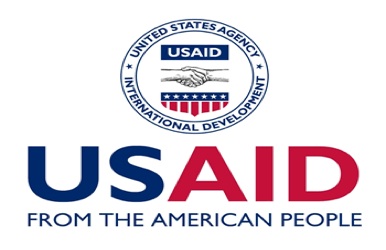
Faced with the current fiscal crisis, U.S. politicians are looking for places to make deep cuts, and one obvious target for the general public appears to be taxpayer dollars sent to foreign countries to build their schools, roads and more recently private businesses — projects that have trouble being funded here.
The presidential campaign also provides a forum for debating whether the Middle East policies of the Obama administration can be turned into votes for either candidate.
A good test case for both situations turned up Friday when the State Department’s plan to provide Egypt with an additional $450 million in aid went to Congress.
Rep. Kay Granger (R-Tex.), chairman of the House Appropriations subcommittee on foreign operations, which handles foreign aid money, zeroed in on the plan in a statement: “This proposal comes to Congress at a point when the U.S.-Egypt relationship has never been under more scrutiny, and rightly so. I am not convinced of the urgent need for this assistance and I cannot support it at this time. As chair of the subcommittee, I have placed a hold on these funds.”
Her comments generated stories around the world with headlines like this: “U.S. plan for emergency Egypt aid hits roadblock.”
Let’s examine Granger’s statement. Her reference to “more scrutiny” results most immediately from the Sept. 11 attack on the U.S. Embassy in Cairo, stirred up by provocateurs using a vicious anti-Islam video. The video was produced by an Egyptian-born Coptic Christian living in California and was designed to create trouble.
On Sept. 8, a 14-minute version dubbed in Arabic was shown on an Egyptian channel called al-Nas and later went viral online, where it had hundreds of thousands of Egyptian viewers. One version said the video was directed by an Israeli American and financed by American Jews, which made the U.S. Embassy a target for outraged Egyptians.
In the United States, pictures of the Cairo attack merged with those from Benghazi, Libya, where U.S. Ambassador J. Christopher Stevens and three others were killed. We’ve learned that the latter assault was planned by terrorist factions that oppose Libya’s government.
In short, it wasn’t just about us.
It reminds me of 1979 and 1980, when Iranian “students” seized the U.S. Embassy in Tehran. Americans thought it was to punish Washington, but later intelligence showed the real purpose was to get rid of exile Iranians who had returned with Ayatollah Ruhollah Khomeini and taken over major government posts. One by one they were forced from office.
Mitt Romney quickly turned the Cairo/Benghazi attacks into a campaign issue. His initial statement said, “It’s disgraceful that the Obama administration’s first response was not to condemn attacks on our diplomatic missions but to sympathize with those who waged the attacks.”
Then he accused President Obama of showing “weakness” in his Middle East policy and thus encouraging such attacks. Romney’s critique noted that Egypt’s democratically elected president, Mohamed Morsi, is a former member of the Muslim Brotherhood, and that’s bad.
Obama is not immune from responding to what he must see as a potentially troubling political issue. He publicized his call to Morsi complaining about Egypt’s lack of protection for the embassy and won from him a call to end the violence and arrest the troublemakers. After an interview slip, where Obama described Egypt as “neither an ally nor an enemy,” Secretary of State Hillary Rodham Clinton on Friday summed up the situation, saying, “Extremists are clearly determined to hijack these wars and revolutions to further their agendas and ideology, so our partnership must empower those who would see their nations emerge as true democracies.”
That brings us to another part of Granger’s statement, where she said she was “not convinced of the urgent need for this assistance.”
The funds for Egypt are to be delivered in two parts, both of which could take time. The terminal date for the program is Sept. 30, 2014, according to the four-page notification to Congress. The first $190 million will be delivered only after the Egyptian government commits to a fiscal and governance reform plan and an agreement with the International Monetary Fund on a $4.8 billion loan package. The remaining $260 million would depend on Egypt achieving some reforms that include “increasing taxation revenues through a broadened tax base and reducing tax exemptions,” according to the notification.
As for the Granger “hold,” the State Department’s Victoria Nuland told reporters that with Congress out until after the election, there’s time to explain to lawmakers and Hill staffers “the understandings we have with the government of Egypt to try to allay the concerns so the money can go forward.”
No vote of approval is needed, but State officials learned long ago it’s better to work out problems with members whose support they’ll need in the future on other matters.
It’s called diplomacy. That’s what the State Department does.



